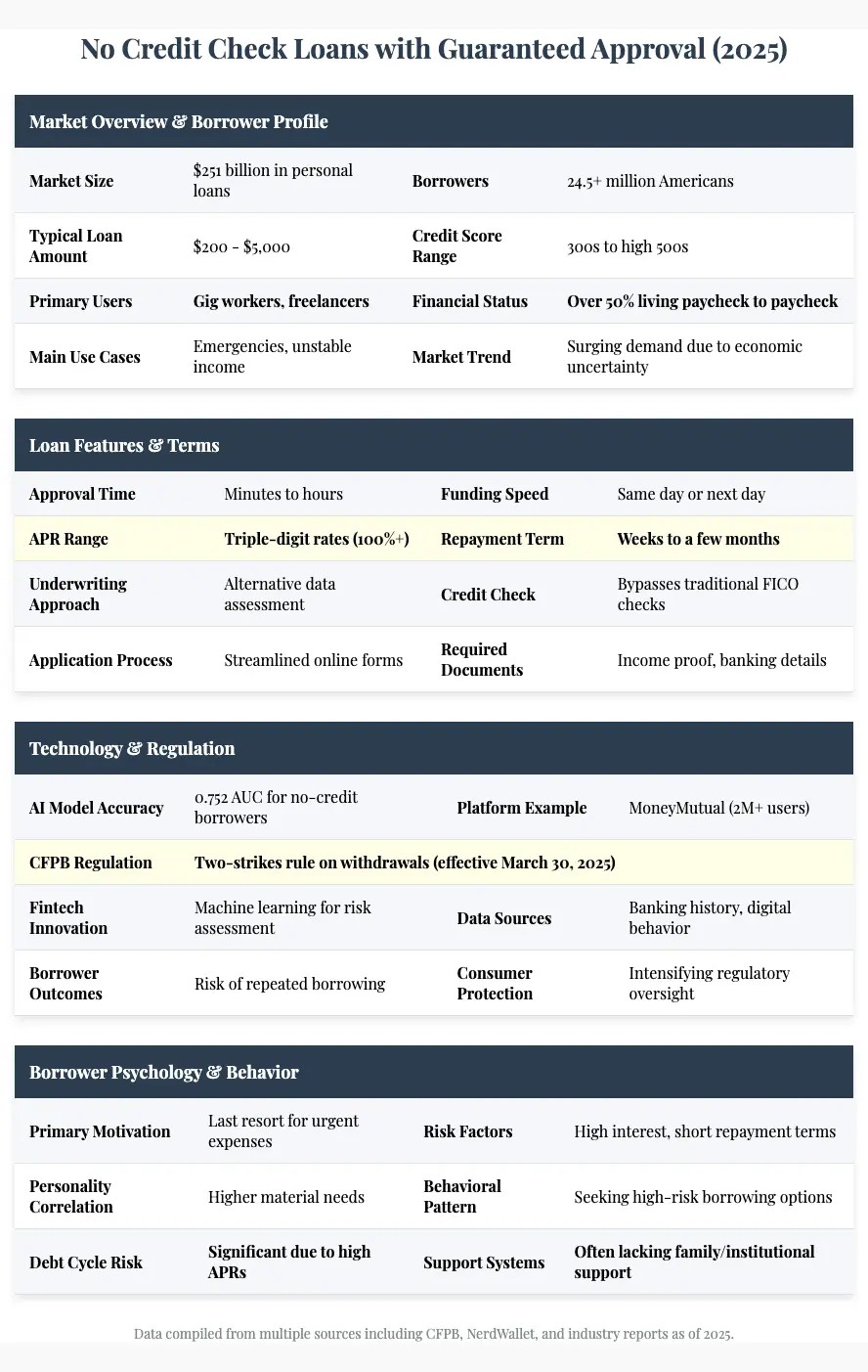Loans Based On Employment Not Credit Guaranteed Approval

The promise of quick cash without the scrutiny of a credit check is alluring, especially in today's uncertain economic climate. A new breed of loan product, marketed as "employment-based" or "income-based" loans with "guaranteed approval," is gaining traction, raising both hopes and concerns for borrowers.
But do these loans truly offer a safe harbor for those with poor credit histories, or do they represent a new wave of potentially predatory lending practices? This article delves into the details of these loans, examining their mechanics, potential benefits, associated risks, and the perspectives of borrowers, lenders, and consumer advocates.
Understanding Employment-Based Loans
Employment-based loans, unlike traditional loans, prioritize an applicant's employment status and income over their credit score. Lenders typically require proof of stable employment, often in the form of pay stubs, and use this information to determine loan eligibility and repayment terms.
The allure of guaranteed approval stems from this emphasis on employment. Individuals with limited or damaged credit histories, who might be automatically rejected by traditional lenders, may find themselves approved for an employment-based loan.
The Mechanics of the Loan
The loan amount is often a percentage of the borrower's monthly income. Repayment schedules are structured around paydays, with automatic deductions from the borrower's paycheck.
This direct deduction is meant to ensure timely repayment and reduce the risk for the lender. However, it also raises concerns about the borrower's ability to manage their remaining income after the loan payment.
The Appeal and the Risks
For those with limited access to traditional credit, employment-based loans can seem like a lifeline. They offer a quick and convenient source of funds for unexpected expenses or emergencies.
However, the convenience often comes at a steep price. These loans typically carry significantly higher interest rates and fees compared to traditional loans or credit cards.
The High Cost of Borrowing
The Annual Percentage Rate (APR) on employment-based loans can be exorbitant, sometimes exceeding 300% or even higher. This is due to the perceived higher risk associated with lending to individuals with poor or no credit history.
Furthermore, hidden fees, such as origination fees or late payment penalties, can add significantly to the overall cost of the loan. Borrowers need to carefully scrutinize the loan agreement to understand all associated costs.
The Debt Trap
The combination of high interest rates and short repayment terms can easily lead to a cycle of debt. Borrowers may find themselves needing to take out another loan to cover the previous one, trapping them in a continuous cycle of borrowing and repayment.
Consumer advocates warn against using these loans for non-essential expenses or as a long-term financial solution. Careful budgeting and exploring alternative options are crucial.
Perspectives on Employment-Based Loans
Lenders offering employment-based loans often portray them as a responsible alternative to payday loans or other high-risk lending products. They argue that they provide a valuable service to individuals who are underserved by traditional financial institutions.
However, consumer advocacy groups and regulators are increasingly concerned about the potential for abuse. They argue that these loans can be predatory, targeting vulnerable individuals and trapping them in a cycle of debt.
The Borrower's Experience
Many borrowers turn to employment-based loans out of desperation, lacking other options to cover immediate financial needs. While the quick approval is appealing, the high cost of borrowing can quickly become overwhelming.
Stories abound of borrowers struggling to make ends meet after the automatic loan deductions, forced to cut back on essential expenses or take on additional debt.
"It seemed like a good idea at the time, but the high interest rates quickly became unmanageable,"said one borrower, speaking anonymously to a consumer advocacy group.
Regulatory Scrutiny
The lack of comprehensive regulation surrounding employment-based loans is a growing concern. Some states have stricter usury laws that cap interest rates, while others have little to no oversight.
The Consumer Financial Protection Bureau (CFPB) has been monitoring the market for these loans and is considering potential regulatory actions to protect consumers from predatory lending practices. Increased transparency and clearer disclosures of loan terms are key areas of focus.
Alternatives and Future Outlook
Before resorting to employment-based loans, borrowers should explore alternative options, such as credit counseling, community resources, or borrowing from friends and family. Building an emergency fund, however small, can also provide a buffer against unexpected expenses.
The future of employment-based loans is uncertain, with increased regulatory scrutiny and growing awareness of the potential risks. Borrowers must exercise extreme caution when considering these loans, carefully weighing the benefits against the potential for long-term financial harm.
As the demand for short-term credit continues, innovation in the lending industry is likely to continue. The challenge lies in ensuring that these new products are fair, transparent, and do not exploit vulnerable consumers. Further, Financial literacy and responsible borrowing habits are key to preventing individuals from falling into debt traps.
















